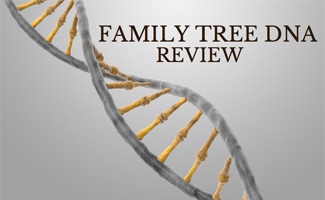Types Of DNA Testing: Genealogy (Ancestry), Paternity, Health, Pets, & More

So you’ve heard it’s all the rage – DNA testing. Is your great great grandmother someone super famous? Does it turn out you actually have twice as many second cousins as you thought? And if you do decide to take the plunge and discover all your long lost relatives, how can you be sure your data is being protected and won’t be misused down the road? We address all this and more as we discuss the different types of DNA tests and what they are used for.
Types Of DNA Tests For Ancestry: Autosomal, mtDNA & Y-DNA
Ancestry DNA tests map out your ethnicity going back multiple generations and provide insight into such possibilities as what region your family came from. Depending on what information you want, you can choose from the following tests.
Autosomal DNA Test (Lineage Of Both Parents)

Autosomal DNA tests look at chromosomes 1-22 that you’ve inherited from both your parents. Don’t know much about your grandparents or other relatives? Autosomal DNA tests map approximately 700,000 markers across your chromosomes. Specific to neither male nor female, these markers create an accurate and fascinating map of your distant relatives and a deep dive into your ethnicity.
- Who Can Take The Test: Males and females.
- What It Tests For: Autosomal DNA testing matches you with other individuals based on a certain amount of shared DNA.
- What It Can Reveal: You can expect to find matches as far out as 5th cousins and in some cases even further. Tests analyze shared DNA and give you your matches as well as how much DNA you have in common. Autosomal tests also give you estimates of your ethnic origins from around the world.
- How Far Back Are Results: Autosomal DNA tests trace back anywhere from 5 to 10 generations on both your mother’s and father’s sides of the family.
What Are Ethnicity Estimates?
Autosomal DNA tests match your DNA with population samples and studies from across the globe. When you get your DNA test results back, you’ll get a report that gives you a mixture of percentages (ethnicity estimates). These are your unique percentages of where your ancestors lived in defined geographical regions, i.e., 82% British Isles, 10% Eastern European, 2% Native American and so on.
Note: Each company’s ethnicity report differs by their defined global regions, how they present their data to you and the number of population studies they use in their analysis. Your percentages can also differ because of each lab’s unique testing methods. Some autosomal tests also look at parts of your DNA going back even further.
mtDNA Test (Female Lineage)

Mitochondrial DNA testing (mtDNA testing) can trace family history back through the female line. A mother will share mitochondrial cells with her children, whereas a father never will.
- Who Can Take The Test: Males and females.
- What It Tests For: mtDNA tests along the direct maternal line, examining genetic markers on your mtDNA, which is passed down from mother to child each generation.
- What It Can Reveal: Your direct maternal deep ancestry and which haplogroup you belong to.
- How Far Back Are Results: All humans descended from Mitochondrial Eve, who lived an estimated 200,000 years ago in Africa. Her descendants are organized into different branches called haplogroups.
Y-DNA Test (Male Lineage)

The Y-chromosome DNA (Y-DNA) test traces direct male-line ancestry — grandfather to father to son and so on. The Y-chromosome passes down each generation virtually unchanged. Since females don’t carry the Y-chromosome, they can’t take this test. Females, however, can learn something from this test by having a brother, father, paternal grandfather, paternal uncle or a male cousin (your father’s brother’s son) take a test for you.
Y chromosomes are passed from father to son with very few changes over generations, so can be relied upon for accurate results from thousands of years ago.
- Who Can Take The Test: Males only (because women don’t have a Y-chromosome).
- What It Tests For: The Y-DNA test traces direct male-line ancestry. Each male’s Y-DNA test results are compared to other males’ results to find out their most recent common ancestor (MRCA) in their direct patrilineal lines.
- What It Can Reveal: This test can tell you which Y-haplogroup you belong to if you’re male. Your Y-DNA haplogroup reflects the ancient ancestry of your paternal line.
- How Far Back Are Results: Like mtDNA tests, Y-DNA tests can go back hundreds of thousands of years.
DNA Tests For Paternity, Health, And Pets
Now that you’re familiar with the types of DNA tests available, you’re probably wondering what all can we use this information for? Scientists and researchers have been hard at work the past couple decades and we are now able to use DNA tests to test for things such as:
- Paternity – who’s the father?
- Health conditions – while this branch of DNA testing science is still in its infancy, researchers are making progress every day.
- Cancer risk – screening to check for genetic indicators to help establish potential risk of developing cancer.
- Carrier status for inherited conditions (to ascertain the possibility of a parent passing a condition to their child)
- Pet DNA testing – these can, for example, give you an idea of the breeds make-up of your rescue dog.
DNA Paternity Test
Historically one of the more common types of DNA tests, a paternity test determines the biological link between a father and child. There’s even a non-invasive prenatal paternity test available now. Read our paternity test comparison for the scoop.
DNA Health Testing
At-home DNA testing for most medical and health-related purposes is still in its infancy, but scientists are making advances every day. It’s always a good idea to talk with your physician and/or a genetic counselor before deciding whether to test yourself. A counselor can also help you decipher the results.
Check out our article on DNA testing for health reasons to see which at-home tests are legit.
Note: Keep in mind, these tests analyze your genetic makeup to see if you’ve inherited genes that could make you more likely to develop a certain condition. But they can’t predict whether you’ll actually get that disease (or even your chances of getting it).
Genetic Testing For Cancer Risk
Some people have a higher risk of developing specific types of cancers that tend to run in the family. In these cases, a physician may test your DNA to look for gene mutations that could indicate a higher risk. One of the better-known examples is testing for mutations in the BRCA1 and BRCA2 genes (breast cancer genes) in women whose mother and sister have had breast cancer.
Genetic Testing For Carrier Status
Want to start a family, but you’re worried you may pass on an unwanted risk to your child? Some DNA tests can tell you if you’re a carrier for certain inherited conditions, such as cystic fibrosis, sickle cell anemia or hereditary hearing loss. A positive match doesn’t mean your child will inherit the condition; it just lets you know whether you carry the gene. These tests include:
- Targeted single variant tests identify a particular variant in one gene that is known to cause a specific condition
- Single gene testing is used to confirm or exclude a specific condition
- Gene panel tests are useful for determining an accurate diagnosis when symptoms are varied or extensive
- Gene expression tests determine which genes are active or inactive, the results of which point to the likelihood of a certain disorder
While the results of these tests won’t dictate your future health with 100% accuracy, they can offer insights into lifestyle choices to mitigate your risk.
Not all DNA tests are the same. A carrier status DNA test, for example, focuses on the specific markers known to be associated with certain inherited conditions. On the other hand, DNA genealogy tests focus on specific markers related to our ancestry.
Pet DNA Testing
Why should your pets be left out of the family tree fun? You can now test your dog’s DNA with providers that can help you find your dog’s breed makeup and identify many health markers. Don’t worry feline fans, your cat can get in on the genealogical action too!




